People in the lab
This page includes information about Dr. Hovel as well as current and former graduate and undergraduate students in the Hovel lab.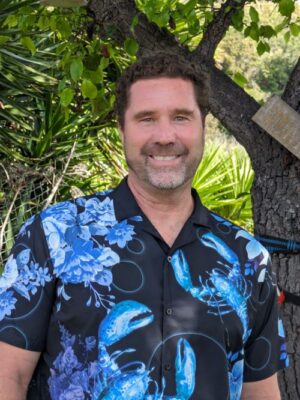
Current graduate students
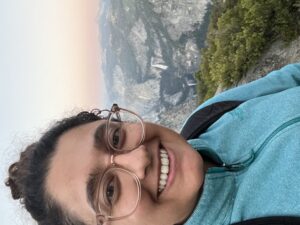 Gulce Ozturk (MS Program)
Gulce Ozturk (MS Program)
gozturk3720@sdsu.edu
Gulce joined the lab in the fall of 2022. She is interested in restoration ecology and has extensive experience working on invasive species removal and species restoration throughout southern California. Gulce graduated with her Bachelor’s from Cal Poly San Luis Obispo in 2016. After graduation, she gained a variety of experience with the California Department of Fish and Wildlife, including work with the recreational fishery survey, lobster management project, and the white abalone restoration project. While working with white abalone, Gulce developed an interest in studying predator prey dynamics in southern California, which led her to the Hovel lab. Her research focuses on mitigating the domestication effect observed in captive bred white abalone, with the goal of developing a behavioral conditioning program to reduce abalone predation upon stocking into native habitat. Gulce’s research is funded by a Kenneth H. Coale Graduate Scholar Award from CSU COAST, the SDSU Retirement Association, and a Mabel Myers Memorial scholarship.
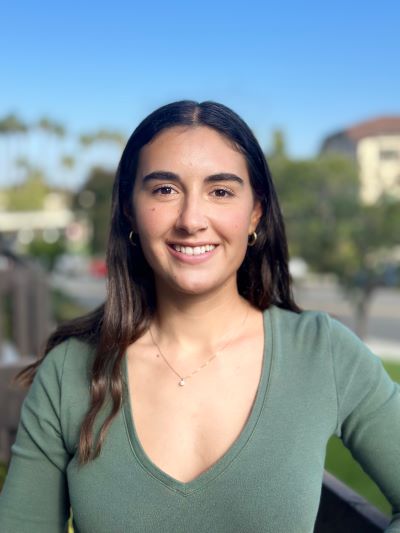 Lily Jorrick (MS Program)
Lily Jorrick (MS Program)
ljorrick3646@sdsu.edu
Lily joined the Hovel lab in 2023. She graduated with a B.S. in Marine Biology from UC San Diego, where she did research that ranged in focus from invertebrate communities in estuaries, to fish developmental physiology, to dolphin social behaviors, before deciding to focus on conservation ecology in grad school. Lily is interested in the ways that species interactions and anthropogenic stressors can impact marine ecosystems, and in tangible conservation solutions for both marine and human coastal communities. Lily’s research is funded by a National Science Foundation Graduate Research Fellowship, and by a Kenneth H. Coale Graduate Scholar Award from CSU COAST.
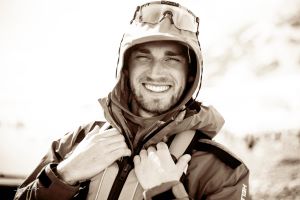 Jesse Humbert(PhD Program)
Jesse Humbert(PhD Program)
jhumbert1095@sdsu.edu
Jefferson (Jesse) Humbert grew up in Oregon at the base of Mt. Hood, after moving to Washington for college. Jesse began to explore the San Juan Islands and developed a passion for marine biology. After completing his masters in Marine Biology and teaching at Rosario Beach Marine Station, Jesse took a year off to work for National Geographic and travel. Upon discovering the Hovel Lab, Jesse returned to academia to further explore octopus behavior and marine environments. The basis of his research relies on deep sea motion detecting cameras which can record the activities of benthic invertebrates.
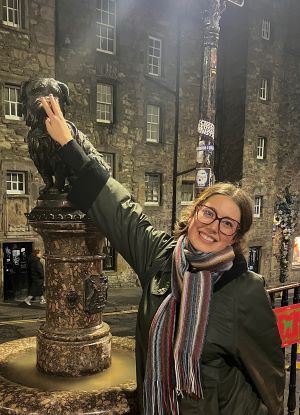 Ruby Miller (MS Program)
Ruby Miller (MS Program)
ruby.lupine@gmail.com
Ruby joined the lab in 2024. She got her B.S. in Marine Biology and minored in Chemistry at Oregon State University. She worked in the Menge Lubchenco lab where she helped monitor ecological communities along the Oregon coast in the context of global climate change. She has extensive experience working with anemones, studying the impacts of climate change and conducting observational studies on intertidal zonation pressures. She also worked closely with a postdoctoral researcher in the Weis lab, where she studied Aiptasia and how their algal symbiont presence and identity affected the growth and development of asexual offspring produced through pedal laceration. Ruby’s research interests center on invertebrates and photosynthetic organisms, particularly focusing on how ocean acidification affects their plasticity and interactions within the ecosystem. She hopes to apply this information to aid the conservation efforts against climate change.
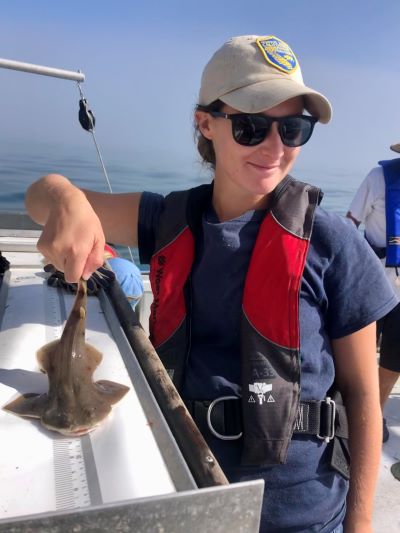 Shoshana Lescht-Smith (MS Program)
sleschtsmith6448@sdsu.edu
Shoshana joined the lab in 2024. She graduated from University of California, Santa Barbara with a Bachelor of Science in Earth Science, Climate and Environment and a minor in Geography. After graduation, Shoshana worked for the California Department of Fish and Wildlife, in Stockton for the Bay Delta Region studying juvenile fish and in Santa Barbara for the State Managed Finfish Project in Southern California Fisheries Research and Management. She mostly worked with California halibut, white seabass, and saltwater basses in commercial and recreational fishing. The projects she worked on are a Juvenile California Halibut Research Trawl, scuba survey and BRUV for Barred Sand Bass, and maturity studies for California Halibut and White Seabass. Her research interests center on juvenile fishery recruitment, how temperature and ocean acidification affect recruitment, spiny lobster ecology, and the effects of MPAs.
Shoshana Lescht-Smith (MS Program)
sleschtsmith6448@sdsu.edu
Shoshana joined the lab in 2024. She graduated from University of California, Santa Barbara with a Bachelor of Science in Earth Science, Climate and Environment and a minor in Geography. After graduation, Shoshana worked for the California Department of Fish and Wildlife, in Stockton for the Bay Delta Region studying juvenile fish and in Santa Barbara for the State Managed Finfish Project in Southern California Fisheries Research and Management. She mostly worked with California halibut, white seabass, and saltwater basses in commercial and recreational fishing. The projects she worked on are a Juvenile California Halibut Research Trawl, scuba survey and BRUV for Barred Sand Bass, and maturity studies for California Halibut and White Seabass. Her research interests center on juvenile fishery recruitment, how temperature and ocean acidification affect recruitment, spiny lobster ecology, and the effects of MPAs.
Former Hovel lab graduate students
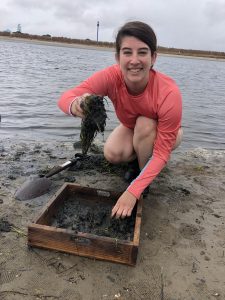 Jessica Griffin (PhD Program)
Jessica Griffin (PhD Program)
jessicaeileengriffin@gmail.com
Jessica’s website: https://jessica-griffin.weebly.com/
Jessica joined the lab in the fall of 2018. She graduated from the University of Connecticut with a Bachelor of Science Dual Degree in Environmental Science (with a Concentration in Natural Resource Management) and Ecology and Evolutionary Biology. While doing her undergraduate program she did a variety of research projects including investigating the Influence of red tide algae on copepod prey selection, researching food quality and diet preferences in mysids, and studying walleye and lake trout patterns of movement in Lake Champlain.
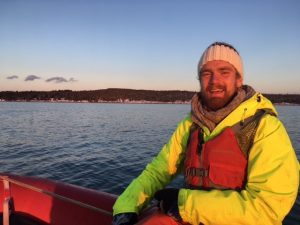 Karl Koehler (MS Program)
Karl Koehler (MS Program)
kskoehler10@gmail.com
Karl joined the lab in the fall of 2019. He graduated from Bowdoin College in Brunswick, Maine with a Bachelors in Earth and Oceanographic Science and a minor in Biology. While at Bowdoin Karl studied abroad at Otago University in New Zealand. He has worked as a naturalist instructor for the Catalina Environmental Leadership Program on Catalina Island, CA where he taught week long programs focused on marine ecology, cooperative problem solving, and environmental stewardship. His recent past includes a variety of other diverse experiences, such as: working in Alaska to help plan, assemble, and operate a new salmon buying outpost from the ground up; working as a blacksmith and general fabricator for an artist in Brunswick, Maine; working as a naturalist instructor for the Sierra Outdoor School; and working as an agricultural laborer in Dixmont, Maine. For his MS thesis, Karl studied the effects of eelgrass habitat structure on the composition and function of invertebrate communities found in the seagrass habitat of Mission Bay, San Diego. In particular, he explored the use of functional traits to look for generalizable patterns in the responses of organisms to habitat structure. Karl graduated from SDSU in 2022 and now works as a Marine Resource Scientist for the Maine Department of Marine Resources.
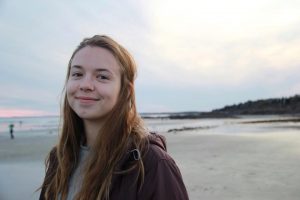 Vanessa Van Deusen (MS Program)
Vanessa Van Deusen (MS Program)
vanessa.van.deusen@gmail.com
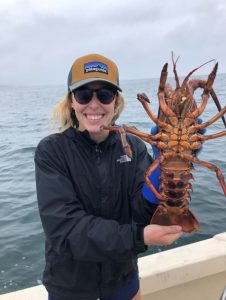 Erica Pollard (MS Program)
Erica Pollard (MS Program)
eapollardd@gmail.com
Erica joined the lab in the fall of 2018 and graduated from SDSU in 2022. Erica completed her undergraduate degree at the University of California, Davis in 2014. Following graduation, she worked as a Research Assistant for UC Davis and Portland State University to study invasive species (Spartina, European green crab) in San Francisco Bay. Her love of crustaceans then led her to seek out the lobster party in the Hovel Lab at SDSU. For her thesis at SDSU, Erica studied food web dynamics within kelp forest systems across the Southern California Bight from the Northwestern Channel Islands to Baja California, Mexico. Specifically, she used the California spiny lobster as a model organism to identify the diet of a kelp forest predator and how this may vary spatially across the bight. To assess diet composition, Erica used stable isotopes to identify main food sources and the overall dietary niche breadth of lobsters. Erica now works as a Benthic Ecologist for the U.S. NAVY.
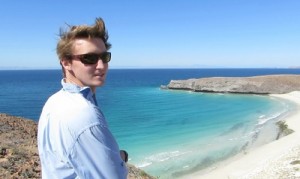 Robert Dunn (PhD Program)
Robert Dunn (PhD Program)
rpdunn@ucdavis.edu
Robert graduated from the Joint Doctoral Program in Ecology in 2019. He then went on to do postdoctoral research in our lab until beginning his job as an assistant professor at the University of South Carolina’s Baruch Marine Field Laboratory, where he also is the Research Coordinator for the North Inlet-Winyah Bay National Estuarine Research Reserve.
At SDSU, Robert’s research focused on the ecological processes that control sea urchin population dynamics and habitat associations in kelp forests and on Caribbean coral reefs. For his dissertation, Robert combined field and lab experiments with mathematical modeling to describe how human processes (fishing) and natural processes (predation, recruitment, and behavior) interactively control sea urchin abundance and distribution. In addition to his experiments in local San Diego kelp forests, Robert’s conducted studies in Panama on urchin-coral-predator associations. In July 2016, Robert was awarded a NMFS-Sea Grant Fellowship in Marine Population Dynamics, and he also was the recipient of an NSF Graduate Research Fellowship when he did his master’s degree with Dr. David Eggleston at North Carolina State University. At SDSU, Robert also taught classes such as Life in the Sea, a large general education course about marine biology.
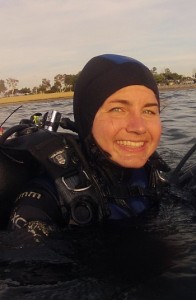 Kaylee Griffith (MS Program)
kgriffith@mail.sdsu.edu
Kaylee Griffith (MS Program)
kgriffith@mail.sdsu.edu
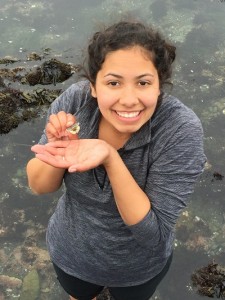 Kyra Barboza (MS Program)
barboza_one@yahoo.com
Kyra entered the Ecology MS program in 2015. She graduated from CSU Long Beach in 2014 where she performed undergraduate directed research on arthropods, and worked for the Long Beach Water Department. Kyra is testing how contaminants such as copper, a prevalent pollutant in San Diego Bay, affect ecological relationships in eelgrass habitat. Her project investigates the role that copper contamination plays in predator-prey relationships and habitat selection for invertebrates that inhabit eelgrass beds.
Kyra Barboza (MS Program)
barboza_one@yahoo.com
Kyra entered the Ecology MS program in 2015. She graduated from CSU Long Beach in 2014 where she performed undergraduate directed research on arthropods, and worked for the Long Beach Water Department. Kyra is testing how contaminants such as copper, a prevalent pollutant in San Diego Bay, affect ecological relationships in eelgrass habitat. Her project investigates the role that copper contamination plays in predator-prey relationships and habitat selection for invertebrates that inhabit eelgrass beds.
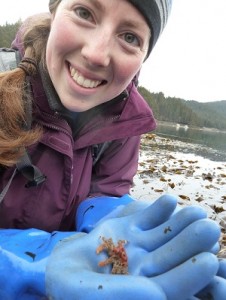 Julia Ledbetter (MS Program)
julia.f.ledbetter@gmail.com
Julia’s research focuses on the role of habitat structure in dictating the foraging efficiency of organisms that live in seagrass habitat. Working with a locally abundant fish (juvenile giant kelp fish) that reside in eelgrass habitat in San Diego Bay, Julia is asking novel questions about whether attached epibionts that grow on eelgrass blades affect the ability of kelpfish to find and capture their prey. Her work combines lab experiments on kelpfish behavior, and field experiments that test whether various aspects of eelgrass structural complexity affect mortality risk for eelgrass invertebrates.
Julia completed her undergraduate degree at the University of Puget Sound in 2009, and then worked in environmental education and science instruction at a number of institutions in the Pacific Northwest before coming to SDSU in 2014. She recently was awarded SDSU’s Mabel Myers Scholarship to help fund her master’s research.
Julia Ledbetter (MS Program)
julia.f.ledbetter@gmail.com
Julia’s research focuses on the role of habitat structure in dictating the foraging efficiency of organisms that live in seagrass habitat. Working with a locally abundant fish (juvenile giant kelp fish) that reside in eelgrass habitat in San Diego Bay, Julia is asking novel questions about whether attached epibionts that grow on eelgrass blades affect the ability of kelpfish to find and capture their prey. Her work combines lab experiments on kelpfish behavior, and field experiments that test whether various aspects of eelgrass structural complexity affect mortality risk for eelgrass invertebrates.
Julia completed her undergraduate degree at the University of Puget Sound in 2009, and then worked in environmental education and science instruction at a number of institutions in the Pacific Northwest before coming to SDSU in 2014. She recently was awarded SDSU’s Mabel Myers Scholarship to help fund her master’s research.
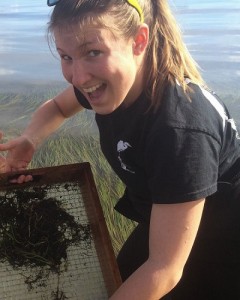 Erin Voigt (MS Program)
Erin studied the effects of eelgrass structural complexity on grazing rates of invertebrate herbivores for master’s thesis. She graduated in 2016 and currently is a PhD student in the lab of Dr. David Eggleston at NC State University.
Erin Voigt (MS Program)
Erin studied the effects of eelgrass structural complexity on grazing rates of invertebrate herbivores for master’s thesis. She graduated in 2016 and currently is a PhD student in the lab of Dr. David Eggleston at NC State University.
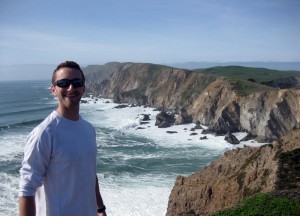 Max Castorani (PhD Program)
Max graduated from SDSU’s Joint Doctoral Program in Ecology (with UC Davis) in 2013. At SDSU/UCD, he studied interactions between eelgrass and other ecosystem engineers, and the effects of an introduced species (the Asian date mussel Arcuatula senhousia) on native bivalves. Max’s PhD work was published in the journals Ecology, Biological Invasions, and the Journal of Experimental Marine Biology and Ecology. While at SDSU he received the prestigious and highly competitive NSF Graduate Research Fellowship to fund his work, as well as numerous smaller awards and several Best Student Paper/Poster awards. Max currently is an assistant professor in the Department of Environmental Sciences at the University of Virginia.
Max Castorani (PhD Program)
Max graduated from SDSU’s Joint Doctoral Program in Ecology (with UC Davis) in 2013. At SDSU/UCD, he studied interactions between eelgrass and other ecosystem engineers, and the effects of an introduced species (the Asian date mussel Arcuatula senhousia) on native bivalves. Max’s PhD work was published in the journals Ecology, Biological Invasions, and the Journal of Experimental Marine Biology and Ecology. While at SDSU he received the prestigious and highly competitive NSF Graduate Research Fellowship to fund his work, as well as numerous smaller awards and several Best Student Paper/Poster awards. Max currently is an assistant professor in the Department of Environmental Sciences at the University of Virginia.
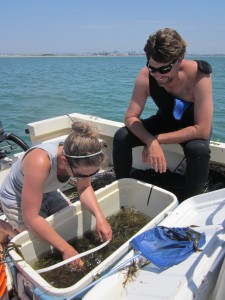 Ryan Jenkinson (PhD Program)
Ryan graduated from SDSU’s Joint Doctoral Program in Ecology in 2016. While at SDSU/UCD, Ryan worked on interactions between urchins, predators (lobsters and fishes), and algae on temperate rocky reefs through California and Mexico. He is the first person to test the strength of these ecological interactions at very large spatial scales. Ryan currently is a postdoctoral researcher studying the effects of marine protected areas on the abundance and diversity of animals in Northern California kelp forests.
Ryan Jenkinson (PhD Program)
Ryan graduated from SDSU’s Joint Doctoral Program in Ecology in 2016. While at SDSU/UCD, Ryan worked on interactions between urchins, predators (lobsters and fishes), and algae on temperate rocky reefs through California and Mexico. He is the first person to test the strength of these ecological interactions at very large spatial scales. Ryan currently is a postdoctoral researcher studying the effects of marine protected areas on the abundance and diversity of animals in Northern California kelp forests.
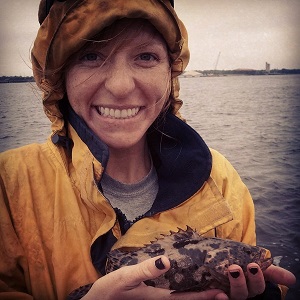 Mallarie Yeager (MS Program)
mallarie.yeager1@gmail.com
Mallarie studies the effects of eelgrass habitat structure on survival and behavior of juvenile giant kelpfish. This species recruits to eelgrass beds in San Diego, where juveniles hunt for food and seek refuge from larger predators. Mallarie’s research focuses on the way in which eelgrass structural complexity mediates mortality risk and foraging efficiency, and how these relationships change through ontogeny.
Mallarie completed her undergraduate degree at the University of North Florida in 2009 and then worked as a Environmental Scientist for the St. Johns River Water Management District in Florida before coming to SDSU. To help fund her graduate studies, in 2013 Mallarie received a highly competitive Inamori Fellowship from SDSU, as well as CSU COAST small grants. She is about to finish her degree, and go on to the Marine and Environmental Sciences PhD program at Northeastern University.
Mallarie Yeager (MS Program)
mallarie.yeager1@gmail.com
Mallarie studies the effects of eelgrass habitat structure on survival and behavior of juvenile giant kelpfish. This species recruits to eelgrass beds in San Diego, where juveniles hunt for food and seek refuge from larger predators. Mallarie’s research focuses on the way in which eelgrass structural complexity mediates mortality risk and foraging efficiency, and how these relationships change through ontogeny.
Mallarie completed her undergraduate degree at the University of North Florida in 2009 and then worked as a Environmental Scientist for the St. Johns River Water Management District in Florida before coming to SDSU. To help fund her graduate studies, in 2013 Mallarie received a highly competitive Inamori Fellowship from SDSU, as well as CSU COAST small grants. She is about to finish her degree, and go on to the Marine and Environmental Sciences PhD program at Northeastern University.
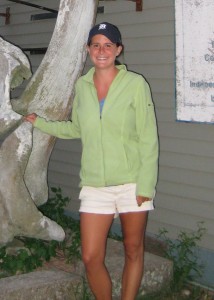 Amalia Harrington (MS Program)
Amalia completed her MS degree working on California spiny lobster ecology. She tested how lobster use of rocky shelters influences their ability to defend themselves from predators. She completed her degree in 2014 and now is getting her PhD in marine ecology in the lab of Dr. Richard Wahle at the University of Maine.
Amalia Harrington (MS Program)
Amalia completed her MS degree working on California spiny lobster ecology. She tested how lobster use of rocky shelters influences their ability to defend themselves from predators. She completed her degree in 2014 and now is getting her PhD in marine ecology in the lab of Dr. Richard Wahle at the University of Maine.
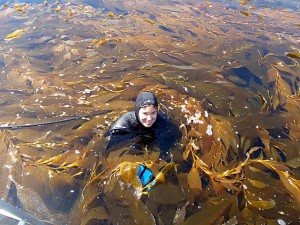 Julia Coates (PhD Program)
Julia graduated from SDSU with her PhD in 2013. For her dissertation she studied the processes that control abalone populations in San Diego kelp forests. Her research involved field experiments on abalone movement behavior, genetic analysis (in collaboration with Dr. Andy Bohonak at SDSU), and individual-based modeling. She currently lives in Santa Barbara and is an Environmental Scientist the California Department of Fish and Wildlife.
Julia Coates (PhD Program)
Julia graduated from SDSU with her PhD in 2013. For her dissertation she studied the processes that control abalone populations in San Diego kelp forests. Her research involved field experiments on abalone movement behavior, genetic analysis (in collaboration with Dr. Andy Bohonak at SDSU), and individual-based modeling. She currently lives in Santa Barbara and is an Environmental Scientist the California Department of Fish and Wildlife.
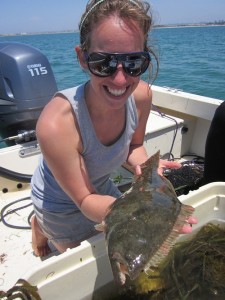 Lee Reeve (MS Program)
Lee graduated with her MS degree from SDSU in 2013. At SDSU, she worked on associations between juvenile California halibut and eelgrass habitat in San Diego Bay. Lee studied habitat selection by juvenile halibut and the effects of eelgrass structure on their ability to avoid predators and consume prey. After graduating from SDSU, Lee received a Fulbright Scholarship to study flatfish ecology in Denmark.
Lee Reeve (MS Program)
Lee graduated with her MS degree from SDSU in 2013. At SDSU, she worked on associations between juvenile California halibut and eelgrass habitat in San Diego Bay. Lee studied habitat selection by juvenile halibut and the effects of eelgrass structure on their ability to avoid predators and consume prey. After graduating from SDSU, Lee received a Fulbright Scholarship to study flatfish ecology in Denmark.
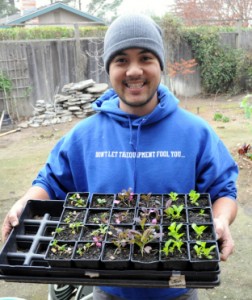 Brian Cheng (MS Program)
Brian graduated from SDSU’s Ecology MS program in 2008. At SDSU, he studied the effects of native predators on populations of the introduced Asian mussel Arcuatula senhousia. Brian’s work revealed that a local fishery species, the California spiny lobster, plays a large role in controlling Asian mussel populations in Mission Bay, a San Diego estuary. Brian went on to obtain a PhD from the Graduate Group in Ecology at UC Davis, working with Dr. Ted Grosholz, and presently is an assistant professor at the University of Massachusetts Amherst.
Brian Cheng (MS Program)
Brian graduated from SDSU’s Ecology MS program in 2008. At SDSU, he studied the effects of native predators on populations of the introduced Asian mussel Arcuatula senhousia. Brian’s work revealed that a local fishery species, the California spiny lobster, plays a large role in controlling Asian mussel populations in Mission Bay, a San Diego estuary. Brian went on to obtain a PhD from the Graduate Group in Ecology at UC Davis, working with Dr. Ted Grosholz, and presently is an assistant professor at the University of Massachusetts Amherst.
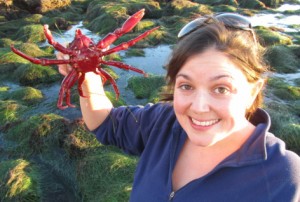 Eliza Moore (MS Program)
Eliza graduated from SDSU in 2008. For her master’s thesis, Eliza studied the relative effects of eelgrass patch edges and eelgrass structural complexity on biodiversity and predator-prey interactions. She went on to work for the City of San Diego as an environmental scientist, and then to a research assistant position in the lab of Dr. Jon Witman at Brown University.
Eliza Moore (MS Program)
Eliza graduated from SDSU in 2008. For her master’s thesis, Eliza studied the relative effects of eelgrass patch edges and eelgrass structural complexity on biodiversity and predator-prey interactions. She went on to work for the City of San Diego as an environmental scientist, and then to a research assistant position in the lab of Dr. Jon Witman at Brown University.
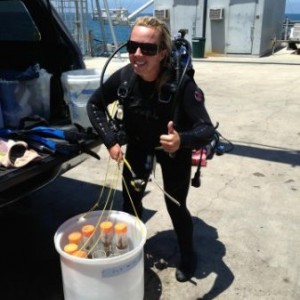 Kelly Tait (MS Program)
Kelly graduated with her MS degree in 2011. At SDSU her research focused on the effects of eelgrass habitat structure on habitat selection for juvenile fishes and their invertebrate prey. Her study was published in the Journal of Experimental Marine Biology and Ecology. Kelly currently works as a Senior Environmental Specialist for the San Diego Unified Port District.
Kelly Tait (MS Program)
Kelly graduated with her MS degree in 2011. At SDSU her research focused on the effects of eelgrass habitat structure on habitat selection for juvenile fishes and their invertebrate prey. Her study was published in the Journal of Experimental Marine Biology and Ecology. Kelly currently works as a Senior Environmental Specialist for the San Diego Unified Port District.
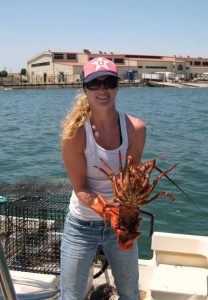 Kira Hughes
kirawa@hawaii.edu
Kira graduated with her MS degree in 2010. Her research focused on California spiny lobster movement behavior, habitat use, and implications for the effectiveness of marine protected areas. Her study was published in Marine and Freshwater Research. Kira currently works as a Project Manager for the Gates Lab at the Hawaii Institute of Marine Biology.
Kira Hughes
kirawa@hawaii.edu
Kira graduated with her MS degree in 2010. Her research focused on California spiny lobster movement behavior, habitat use, and implications for the effectiveness of marine protected areas. Her study was published in Marine and Freshwater Research. Kira currently works as a Project Manager for the Gates Lab at the Hawaii Institute of Marine Biology.
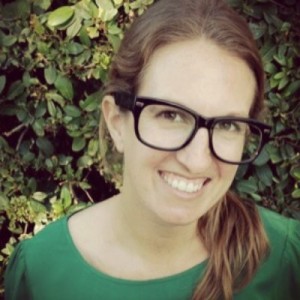 Katie Nichols (MS Program)
Katie graduated with her MS degree in 2009. At SDSU, her thesis focused on predation on sea urchins in the kelp forests of San Diego. Her study, in collaboration with Leah Segui (an undergraduate in our lab who has gone on to get a PhD at the University of Washington), was published in the journal Marine Biology. Katie currently works as a Natural Resource Manager and Ecologist at Ocean Associates in Long Beach, CA.
Katie Nichols (MS Program)
Katie graduated with her MS degree in 2009. At SDSU, her thesis focused on predation on sea urchins in the kelp forests of San Diego. Her study, in collaboration with Leah Segui (an undergraduate in our lab who has gone on to get a PhD at the University of Washington), was published in the journal Marine Biology. Katie currently works as a Natural Resource Manager and Ecologist at Ocean Associates in Long Beach, CA.
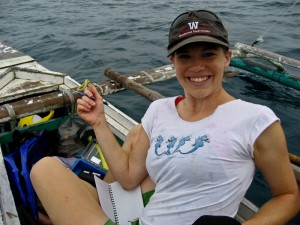 Jennifer Selgrath (MS Program)
Jennifer graduated from SDSU with her MS degree in 2006. At SDSU, she studied habitat associations of American lobsters in nearhore benthic environments in New England. Her thesis combined experimental ecology on juvenile American lobsters with surveys of cobble habitat across New England coastal waters and GIS analysis. She went on to obtain a PhD with Dr. Amanda Vincent at the University of British Columbia.
Jennifer Selgrath (MS Program)
Jennifer graduated from SDSU with her MS degree in 2006. At SDSU, she studied habitat associations of American lobsters in nearhore benthic environments in New England. Her thesis combined experimental ecology on juvenile American lobsters with surveys of cobble habitat across New England coastal waters and GIS analysis. She went on to obtain a PhD with Dr. Amanda Vincent at the University of British Columbia.
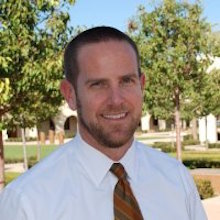 Brendan Reed (MS Program)
Brendan graduated with his MS degree in 2005. At SDSU his research focused on the effects of eelgrass habitat fragmentation on biodiversity of epifaunal communities in San Diego Bay. Brendan currently works as the Director of Environmental Affairs at the San Diego County Regional Airport Authority
Brendan Reed (MS Program)
Brendan graduated with his MS degree in 2005. At SDSU his research focused on the effects of eelgrass habitat fragmentation on biodiversity of epifaunal communities in San Diego Bay. Brendan currently works as the Director of Environmental Affairs at the San Diego County Regional Airport Authority
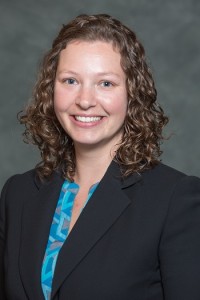 Rachel Kushner (MS Program)
Rachel first joined the lab as an undergraduate honor’s thesis student, and then went on to get her MS degree in 2005. Her work focused on top-down (predatory) effects on the invasive Asian mussel in Mission Bay near San Diego. Her work was published in the Journal of Experimental Marine Biology and Ecology, and contributed to a paper published in Ecology by another former graduate student, Dr. Max Castorani. Rachel went on to get her JD degree from California Western School of Law in 2009, and currently work as a lawyer for Daley and Heft LLP in San Diego.
Rachel Kushner (MS Program)
Rachel first joined the lab as an undergraduate honor’s thesis student, and then went on to get her MS degree in 2005. Her work focused on top-down (predatory) effects on the invasive Asian mussel in Mission Bay near San Diego. Her work was published in the Journal of Experimental Marine Biology and Ecology, and contributed to a paper published in Ecology by another former graduate student, Dr. Max Castorani. Rachel went on to get her JD degree from California Western School of Law in 2009, and currently work as a lawyer for Daley and Heft LLP in San Diego.
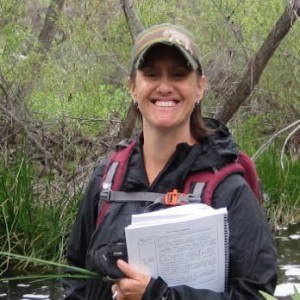 Linday Teunis (MS Program)
Lindsay graduated with her MS degree from SDSU in 2005. At SDSU, she worked on the role of eelgrass structural complexity in dictating patterns of animal community structure. She currently works as an Ecologist at ICF International in San Diego.
Linday Teunis (MS Program)
Lindsay graduated with her MS degree from SDSU in 2005. At SDSU, she worked on the role of eelgrass structural complexity in dictating patterns of animal community structure. She currently works as an Ecologist at ICF International in San Diego.
Former Hovel lab undergraduate students
Undergraduate students have been an integral part of our lab. Any SDSDU undergraduate interested in independent study in the Hovel lab should contact Dr. Hovel.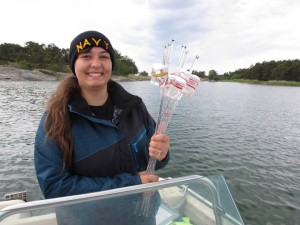 Shay Hengen
Shay was an intern in the lab for two years, and was an important team member for our seagrass research in San Diego Bay and via the Zostera Experimental Network. She is shown here holding tethered amphipods, ready to deploy in the Baltic Sea in Finland, where she helped perform seagrass research.
Shay Hengen
Shay was an intern in the lab for two years, and was an important team member for our seagrass research in San Diego Bay and via the Zostera Experimental Network. She is shown here holding tethered amphipods, ready to deploy in the Baltic Sea in Finland, where she helped perform seagrass research.
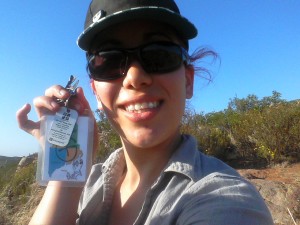 Alterra Sanchez
Alterra joined the lab as an undergraduate intern in the summer of 2010. She spent the next four years working as an important part of our research team, focusing on seagrass ecology. She performed independent research with some of her undergraduate colleagues, which was published in the Journal of Experimental Marine Biology and Ecology, and which was presented at conferences. She worked as a lab tech for two years, and at the end of her undergraduate career did an honor’s thesis in the lab, which focused on the effects of contaminants in San Diego Bay on biodiversity and herbivory in seagrass habitat.
Alterra Sanchez
Alterra joined the lab as an undergraduate intern in the summer of 2010. She spent the next four years working as an important part of our research team, focusing on seagrass ecology. She performed independent research with some of her undergraduate colleagues, which was published in the Journal of Experimental Marine Biology and Ecology, and which was presented at conferences. She worked as a lab tech for two years, and at the end of her undergraduate career did an honor’s thesis in the lab, which focused on the effects of contaminants in San Diego Bay on biodiversity and herbivory in seagrass habitat.
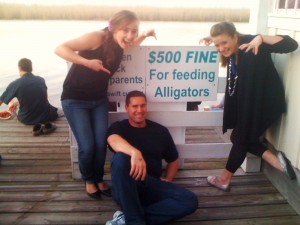 Stacey Virtue-Hilborn and Alex Warneke
Stacey and Alex were undergraduate interns in our lab in 2010-2011. Along with Alterra Sanchez, they performed experiments on fish feeding ecology in seagrass habitat, which was published in the Journal of Experimental Marine Biology and Ecology. They both greatly assisted with many seagrass-related projects in the lab, and both have gone on to graduate school in marine ecology.
Stacey Virtue-Hilborn and Alex Warneke
Stacey and Alex were undergraduate interns in our lab in 2010-2011. Along with Alterra Sanchez, they performed experiments on fish feeding ecology in seagrass habitat, which was published in the Journal of Experimental Marine Biology and Ecology. They both greatly assisted with many seagrass-related projects in the lab, and both have gone on to graduate school in marine ecology.
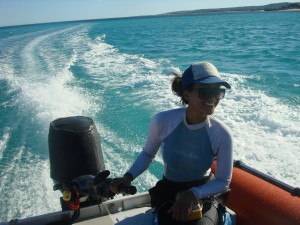 Segui
Leah did her undergraduate degree at SDSU and graduated magna cum laude in 2010. In our lab, she not only served as an intern and research technician, but performed a challenging and demanding honors thesis on kelp forest ecology that formed part of a publication in the journal Marine Biology. Her work in our lab involved field work off the coast of La Jolla as well as mathematical models of predator-sea urchin interactions. She now is getting her PhD at Oregon State University with Dr. Mark Novak.
Segui
Leah did her undergraduate degree at SDSU and graduated magna cum laude in 2010. In our lab, she not only served as an intern and research technician, but performed a challenging and demanding honors thesis on kelp forest ecology that formed part of a publication in the journal Marine Biology. Her work in our lab involved field work off the coast of La Jolla as well as mathematical models of predator-sea urchin interactions. She now is getting her PhD at Oregon State University with Dr. Mark Novak.
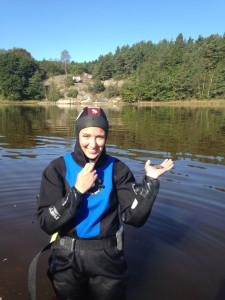 Whitney Dailey
Whitney worked as an intern in the lab for several years during her undergraduate years at SDSU. She was one of the five students selected to participate in the study abroad program as part of our Zostera Experimental Network research in 2014. Whitney is shown here preparing to do field research in Sweden as part of this international experience.
Whitney Dailey
Whitney worked as an intern in the lab for several years during her undergraduate years at SDSU. She was one of the five students selected to participate in the study abroad program as part of our Zostera Experimental Network research in 2014. Whitney is shown here preparing to do field research in Sweden as part of this international experience.
